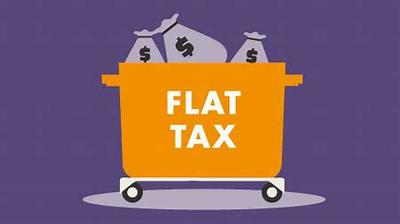- Home
- Income Taxes
- News
- Top 7 New 2018 Income Tax Rules For Individuals
13 Life Changes Important To Year End Income Tax Planning
(California)
There are many tax considerations that are important to consider at the end of the year. Personal circumstances that changed during the year as well as what may change next year should be considered in your year-end tax planning strategies.
Following are 13 life changes that are important to consider in your year-end financial planning:
1) Birth of a child
2) Child no longer young enough for child credit
3) Child has outgrown the "kiddie" tax
4) Change in filing status such as divorce, marriage or death
5) Changes in medical expenses
6) Casualty and theft losses
7) Moving or relocation of home due to job
8) Employment Changes
9) College and tuition expenses
10) Personal bankruptsy
11) Retirement
12) Business income increases or decreases
13) Inheritance
250,000 Income Tax Treshold
Why is $250,000 the magic number?
There has been much debate with regards to how to close the budget deficit. With President Obama's fix saying that federal income taxes should be increased for households making more than $250,000.
The questions is, how did this become the threshold between being considered wealthy or middle class? Many people are questioning whether or not a household making more than that are truly wealthy enough to be taxed at the same bracket as millionaires.
This number seems to have a political basis. The dividing line originally appeared in 1993 when Clinton started a new tax bracket at 250,000 with a rate of 39.6%.
Meanwhile, President Obama first started using the $250,000 household income level to define who is wealthy in 2008. The proposed top household income tax bracket starts at $250,000 and would pay 39.6 percent on federal income. Single filers who make $200,00 or more would also be in the highest bracket. Currently, the highest tax bracket starts at $379,150, and they pay 35 percent so this would be a significant increase.
Aides that have worked with President Obama said he liked the $250,000 threshold because it helped bring back the feelings of President Clinton's era of economic prosperity in the 1990s.
But the question remains as to whether or not this is the best dividing line between the wealthy and middle class. As most making this amount of income do not necessarily feel rich in comparison to the millionaires they are being lumped in with.
5 Tax Saving Summer Tips
by Stephanie
(Sonoma County)
This summer while you are out and about doing your summer activities, keep in mind that some of your summertime adventures my qualify for tax deductions or credits.
Following are 5 tax saving summertime tips from the IRS that could help you to lower taxes and avoid issues when it's time to do your income taxes.
1) Getting Married: If you are planning on getting married over the summer, there are some things you can do now to help avoid problems later at tax time.
First, make sure to report any name change to the Social Security Administration right away before filing your next tax return.
Next, report any address changes to the USPS postage service, employers and the IRS to insure you get all of your tax documents in one place, so these things won't cause any delays for you later.
2) Cleaning House: If you are like me you like to do some summertime cleaning up of your house.
When cleaning up and finding items to get rid of, make sure to set aside items that are in good condition.
These items can then be donated to a qualified charity so that you may qualify for a tax deduction if you itemize deductions on your tax return.
Make sure to get a receipt for proof of the deduction.
3) Remodeling Home: Many people also like to do some remodeling projects on their home, vacation and rental properties during the summer when the whether is nice.
Make sure to keep all your receipts for any and all repair work done as this could potentially be a write-off on your tax return if you use any portion of the homes for business.
You will also want this information in case it adds to your basis for when you sell the property later.
4) Volunteer Services: When you volunteer your time for community services, fundraisers, coaching, etc., make sure to log the expenses you pay for and the mileage that you drive.
You can possibly deduct your out of pocket expenses as charitable donations and you can get reimbursed for the miles you drive as well.
5) Summer Day Camp: There are many working parents out there who send their kids to camp during the day over the summer to help in part with childcare.
If this applies to you and your child is under 13 years old, this may qualify you for the child and dependent care credit on your tax return.
Don't forget to keep these 5 tips in mind over the summer to help save you any headaches and money at tax time.
Bonus Depreciation Income Tax Guidance
Tax Legislation Update: IRS Revenue Procedure 2011-26 Provides Bonus Depreciation Guidance
By Nancy Faussett, CPA
Publication Date: 05/03/2011
The new IRS Revenue Procedure 2011-26 gives detailed guidance on handling the deduction for bonus depreciation in specific situations.
While mainly concerned with the new 100% bonus depreciation deduction, Revenue Procedure 2011-26 also discusses the 50% bonus deduction. This important revenue procedure does the following:
Clarifies that qualifying restaurant property and retail improvement property are eligible for bonus depreciation, Provides a limited exception for components of larger self-constructed property to qualify for the 100% bonus depreciation deduction even if construction began on the larger property before September 9, 2010,
Explains how to depreciate luxury vehicles that qualify for the 100% bonus deduction, in the years following their placed-in-service years,
Provides an election to use 50% bonus depreciation on certain property that qualifies for the 100% bonus deduction, and
Explains how to apply 50% bonus depreciation retroactively on certain 2009 and 2010 tax returns.
The last two items above are time sensitive and, therefore, are the focus of this article. You do not want to miss out on these new opportunities for claiming bonus depreciation on returns that may have already been filed!
Election to Claim 50% Bonus Depreciation Instead of 100% Bonus
As long as the taxpayer does not make the election not to claim bonus depreciation, the taxpayer may elect to deduct 50%, instead of the 100%, bonus depreciation for any class or classes of qualifying assets. This election is only available for a tax year that includes September 9, 2010.
The election must be made by the due date (including extensions) of your tax return for the year that includes September 9, 2010. It is made in the same manner as the election not to claim bonus depreciation and, therefore, cannot be made on an asset-by-asset basis.
If, on or before April 18, 2011, a taxpayer has already timely filed its federal tax return for the tax year that includes Sept. 9, 2010, there is an automatic 6-month extension from the due date of that return (excluding extensions) to make this election to claim 50% bonus depreciation instead of the 100% depreciation deduction.
To make the election, the taxpayer must file an amended return and attach an election statement indicating it is filed pursuant to IRS Reg. 301.9100-2(b).
Retroactive Application of 50% Bonus Depreciation
The Small Business Jobs Act of 2010, which was signed into law on September 27, 2010, retroactively extended 50% bonus depreciation for qualifying property placed in service in 2010.
Because the Act was signed so late in the year, many taxpayers were unable to take advantage of it. In response, the IRS, in Revenue Procedure 2011-26, has decided to allow taxpayers to retroactively apply 50% bonus depreciation to qualifying property placed in service after 2009 on the following tax returns:
2009 tax returns for years that began in 2009 and ended in 2010, and
2010 tax returns for short years that began and ended in 2010.
As long as the taxpayer did not make the election not to claim bonus depreciation on such tax returns, the taxpayer may now claim 50% bonus depreciation by filing either:
An amended tax return that is filed before the taxpayer files its tax return for the first tax year succeeding the 2009 tax return or the 2010 short tax year return, or
Form 3115, Application for Change in Accounting Method, with the taxpayer’s timely filed tax return for the first or second year succeeding the 2009 tax year or the 2010 short year return.
However, to file Form 3115, the taxpayer must still own the property as of the first day of the year of the change.
However, such a taxpayer will be treated as if the election not to claim bonus depreciation had been filed as long as the taxpayer:
Deducted depreciation (other than bonus depreciation) on that return, and
Does not file either an amended return or a Form 3115, as described above, to claim bonus depreciation.
And, finally, if the taxpayer timely filed either the 2009 or the 2010 return as described above, and elected not to claim 50% bonus depreciation for a class of property, the taxpayer may now revoke that election as long as an amended return is filed by the later of June 17, 2011, or before filing a return for the first year succeeding the 2009 return or 2010 short year return.
Flat Tax Plan Income Tax News
by Stephanie
(CA)
Apparantly, Arizona Legislature is racing to finalize a budget compromise that includes a controversial flat tax plan that would set a rate of 2.8 percent on all income levels and exempt the first $10,000 in income for individuals and $20,000 for couples.
While the state of Arizona currently has five income tax brackets all ranging from 2.59 percent for couples making $20,000 or less to 4.54 percent for couples making $300,001 or more.
The flat tax would translate into a cut of $450 million and go into effect in 2012. The plan would also allow for mortgage interest payments and charitable contributions that are deducted from federal income taxes to be used in state income tax filings.
Many conservative and anti-tax groups back Flat taxes. It is said that they will help spur investments. While teachers unions and Democrats are among the critics who say lost revenue could cut into spending on education and health care.
Below is a income tax comparison:
Current Individual Income Tax Filing Rates
$0 to $10,000, Individuals - 2.59 percent
$0 to $20,000, couples - 2.59 percent
$10,001 to $25,000, individuals - 2.88 percent
$20,001 to $50,000, couples - 2.88 percent
$25,001 to $50,000, individuals - 3.36 percent
$50,001 to $100,000, couples - 3.36 percent
$50,001 to $150,000, individuals - 4.24 percent
$100,001 to $300,000, couples - 4.24 percent
$150,001 and over, Individuals - 4.54 percent
$300,001 and over, couples - 4.54 percent
New Flat income tax
$0 to $10,000, individuals - 0 percent
$0 to $20,000, couples - 0 percent
above $10,000, individuals - 2.8 percent
above $20,000, couples - 2.8 percent
Source: Arizona Legislature
How do you feel about a Flat tax in your state? Yay? Nay? Why? Or, Why Not?
Your contributions are always appreciated!...
Hobby Loss Income Tax Rules
A treasury audit examines tax impact of abusive hobby loss deductions by high-income taxpayers (Audit Report No. 2007-30-173)
This new audit by the Treasury Inspector General for Tax Administration (TIGTA) has found that actions must be taken to prevent taxpayers from continually deducting losses in potentially not-for-profit (i.e., hobby) activities to reduce their tax liabilities.
The audit focused on IRS efforts to address noncompliant, high-income small business and self-employed taxpayers who claim business losses using Schedule C for activities considered to be not-for-profit. For purposes of the audit, TIGTA categorized taxpayers with total income sources of $100,000.00 or greater to be "high-income taxpayers".
In general, if a taxpayer has hobby income and expenses, the expense deduction is limited to the hobby income amount.
Approximately 1.5 million taxpayers, many with significant income from other sources, filed Form 1040 Schedules C showing no profits, only losses, over four consecutive years running 2002 to 2005.
The IRS has provided a fact sheet to encourage compliance. This may be helpful to use if you are wondering if your hobby is for profit or if you are in danger of an audit. You will find a reproduction of the fact sheet on the Hobby Loss Rule article.
How to File an Income Tax Extension
by Stephanie
(HFS)
There seem to be many more people in need of filing an extension this year.
If you do not think that you will be able to gather all of your tax information in time to have your taxes filed by April 15, 2009, you may choose to file an Application for Automatic Extension of Time, (Form 4868).
This will automatically extend the time you have to file your return until October 15, 2009.
When you file an extension, you will eliminate the late filing penalty. But keep in mind, an extension is not an extension of time to pay your tax liability.
Therefore, you should send in the money along with your extension if you think you are going to owe taxes. This way you can avoid or reduce any underpayment penalties.
TIP: If your return is completed, you are better off filing it even if you are unable to pay the tax due. The IRS will bill you, or you can set up your own payment plan by filing Form 9465.
You can learn more about Forms 4868 and 9465 at www.irs.gov
Comments for How to File an Income Tax Extension
|
||
|
||
Income Made and Taxes Paid by the Rich
by Stephanie
(USA)
The income that is made and taxes that are paid by the rich vs the not so rich has been quite a hot topic. With most being resistant to any and all kinds of tax increases regardless of whether you are considered rich or not.
So I agree it’s worth posting this graph to help provide some context as it appears that over the past 30 years, the very rich have seen their real taxes decrease even as they’ve seen their incomes increase.
This graph is good to keep in mind when hearing about how the rich are paying a greater proportion of federal income taxes than they have in previous years. While this is true, it is also true that the reason they are paying more in taxes is that they are making much more money. Not because they are being taxed more heavily than they have been in the past.
If you look at the taxes they are paying on any given dollar of income, it has been falling, and for most of us, that's what is actually relevant in terms of our individual tax burdens.
Income Tax Code Overhaul Must Wait
NEW YORK/WASHINGTON (Reuters) – A push to overhaul the U.S. corporate tax code will take a back seat to negotiations on the deficit and debt ceiling over the next two months, Treasury Secretary Timothy Geithner said on Tuesday.
Geithner said the Obama administration hopes to take up the issue of tax simplification before the presidential election in 2012 but he signaled the issue is on hold for now.
"I think realistically this fiscal debate we're having is going to dominate our preoccupation for the next couple of months," Geithner said in response to a question after remarks to the Harvard Club in New York.
He added that the Treasury Department has been working to figure out a more "sensible" design for the tax code.
A revamp of the multi-layered corporate tax system is a key priority for U.S. businesses, which have complained that the current structure hurts their ability to compete globally.
President Barack Obama raised hopes earlier this year that he would take up the cause. He has called the current code "burdensome" and promised in his State of the Union address to work with Democrats and Republicans to simplify it.
Geithner said in early April the administration was working on a broad proposal that could trim the corporate tax rate from the current 35 percent to somewhere in the high 20 percent range in exchange for ridding the code of many special breaks.
Expectations had been building that the Treasury Department would release the plan as early as this month and Geithner had been telling lawmakers its release was imminent, according to a Democratic congressional aide.
But the aide said the Treasury secretary recently moved away from that stance. "It is very easy to talk about tax reform at a 30,000 feet level but once you get to specifics it becomes more difficult," the aide said.
Corporate tax reform has long been a priority for Republicans and some in the White House viewed it as an issue that could help entice Republicans toward a broader deal on deficit reduction.
But Republicans have said lately a tax-code overhaul is too complex to tackle as part of a deal on spending cuts they are demanding in exchange for voting to raise the federal government's $14.3 trillion debt ceiling, which the government hit on Monday.
The Obama administration is eager to get a deal to lift the debt ceiling and has warned of the risk of a default if an agreement is not reached by August 2.
Geithner and other officials say that if uncertainty over the debt ceiling drags on for too long, it could cause turmoil in financial markets and hurt the economy.
Discussing tax reform at the event in New York, Geithner said the administration would like "to take a run at doing this ahead of the election. That means we've got to start but we also need to get this fiscal stuff on a better trajectory."
Senate Republican leader Mitch McConnell told CNN on Sunday that tax reform was "very, very complicated" and would not be part of the current debt and deficit talks.
A major sticking point in any corporate tax revamp plan is how to treat business income earned through the individual side of the tax code.
The White House has floated the idea of requiring that certain large businesses file through the corporate side of the code, a proposal that has drawn howls of protest from many businesses that file under the individual tax code.
Publicly traded partnerships, law firms, hedge funds and private equity funds are among those that may be affected by such a change.
Further complicating efforts is the departure of Treasury Assistant Secretary for tax policy Michael Mundaca.
(Additional reporting by Glenn Somerville and Alister Bull; editing by Caren Bohan and Todd Eastham)
New 2018 Income Tax Bracket Rules
by Stephanie Horne
(Rohnert Park, CA, USA)
The new tax laws for 2018 are keeping the same number of seven tax brackets, however there will be different tax rates along with different tax income break levels.
An example being the highest individual tax rate will be lowering from 39.6% down to 37% while at the same time that tax rate will start at a higher level of income.
This will mean that no matter what tax bracket you end up falling into, even more of your taxable income will be hit with a lower tax rate. This should be good news!
There will also be alterations to inflation indexing. Making it so that tax brackets, standard deductions and other types of items will now be adjusted on an annual basis.
This in turn will mean lower inflation adjustments and smaller annual increases than before.
Which according to those who aren’t in favor of the changes, will result in a hidden tax hike over time that will hit almost all individual tax return filers.
The new tax bracket percentages for 2018 as compared to 2017 from highest to lowest will be as follows:
2017 MARRIED 2018 MARRIED
39.6% Over $480,500 37% Over $600,000
35% $424,950-$480,499 35% $400,000-$599,999
33% $237,950-$424,949 32% $315,000-$399,999
28% $156,150-$237,949 24% $165,000-$314,999
25% $77,400-$156,149 22% $77,400-$164,999
15% $19,050-$77,400 12% $19,050-$77,399
10% Less than $19,049 10% Less than $19,049
2017 SINGLE 2018 SINGLE
39.6% Over $426,700 37% Over $500,000
35% $424,950-$426,699 35% $200,000-$499,999
33% $195,450-424,949 32% $157,500-$199,999
28% $93,700-195,449 24% $82,500-157,499
25% $38,700-$93,699 22% $38,700-$82,499
15% $9,525-$38,699 12% $9,525-$38,699
10% Less than $9,524 10% Less than $9,524
2017 HEAD OF HOUSE 2018 HEAD OF HOUSE
39.6% Over $453,350 37% Over $500,000
35% $424,950-$453,349 35% $200,000-$499,999
33% $216,700-424,949 32% $157,500-$199,999
28% $133,850-$216,699 24% $82,500-157,499
25% $51,800-$133,849 22% $51,800-$82,499
15% $13,600-$51,799 12% $13,600-$51,799
10% Less than $13,599 10% Less than $13,599
Stay tuned for additional individual tax rule changes for Tax Brackets, Investments, Alternative-Minimum Tax, Obamacare’s Health Insurance, Tax Credits, Estates & Trusts, Kiddie Tax, Personal Taxes, Savings Plans and Business Taxes.
New Email Scam IRS Warning For Income Tax Payers
by Stephanie
(California)
The Internal Revenue Service recently issued a warning to tax professionals to pass on the message to taxpayers about a new email scam that is targeting Hotmail users and is being used to steal personal financial information. This phishing email has a subject with the heading...
"Internal Revenue Service Email No. XXXX | We're processing your request soon | TXXXXXX-XXXXXXXX"
The email will lead taxpayers to a fake Microsoft sign in page and will ask you personal questions and try to get financial information.
The IRS has already received well over 900 complaints about the new email scheme that seems to be targeting Hotmail users only. The original suspected websites that were found to be associated with the email scam have been shut down, however taxpayers should now be on the lookout for similar email schemes that could pop up.
If anyone receives unsolicited emails that claim to be from the Internal Revenue Service, please forward it to phishing@irs.gov and then delete it from your computer system. It is very important to remember that the IRS typically does not contact taxpayers through email to request personal financial details.
For more information, you can go to the "Tax Scams and Consumer Alerts" page on the irs.gov website.
Obama's Vow to Crack Down on Income Tax Evaders
WASHINGTON (May 4) -- President Barack Obama proposed Monday to raise taxes on the overseas profits of U.S. companies and to go after evaders who abuse offshore tax shelters.
In announcing a series of steps aimed at overhauling the U.S. tax code, Obama complained that existing law makes it possible to "pay lower taxes if you create a job in Bangalore, India, than if you create one in Buffalo, New York."
The proposal will be a hard sell in Congress. Sen. Max Baucus of Montana, chairman of the tax-writing Senate Finance Committee, offered a tepid response.
"Further study is needed to assess the impact of this plan on U.S. businesses," said Baucus, a Democrat. "I want to make certain that our tax policies are fair and support the global competitiveness of U.S. businesses."
The president said he wants to prevent U.S. companies from deferring tax payments by keeping profits in foreign countries rather than recording them at home and called for more transparency in bank accounts that Americans hold in notorious tax havens like the Cayman Islands.
"If financial institutions won't cooperate with us, we will assume that they are sheltering money in tax havens and act accordingly," Obama said.
Many provisions of the complicated and much-maligned tax code in fact are worded in ways that allow people to legally cut corners.
And the code is filled, likewise, with language that in many circumstances authorizes legal tax end-arounds, if not pure avoidance.
During much of his long campaign for the White House, Obama campaigned for an overhaul and simplication of the code.
At the White House event Monday, he said his new proposals would generate an average of about $21 billion a year in new taxes.
That would amount to only about 2 percent of next year's projected deficit of $1.2 trillion, however.
Under his plan, companies would not be able to write off domestic expenses for generating profits abroad.
The goal is to reduce the incentive for U.S. companies to base all or part of their operations in other countries.
Obama said the government also is hiring nearly 800 new IRS agents to enforce the U.S. tax code.
The administration is not seeking to repeal all overseas tax benefits. Obama called his proposal "a downpayment on the larger tax reform we need to make our tax system simpler and fairer and more efficient for individuals and corporations."
"Nobody likes paying taxes, particularly in times of economic stress," he said. "But most Americans meet their responsibilities because they understand that it's an obligation of citizenship, necessary to pay the costs of our common defense and our mutual well-being."
The current tax code, Obama said, makes it too easy for "a small number of individuals and companies to abuse overseas tax havens to avoid paying any taxes at all."
Obama said he was willing to make permanent a research tax credit that was to expire at the end of the year and is popular with businesses.
Officials estimate that making the tax credits permanent would cost taxpayers $74.5 billion over the next decade.
But administration aides said 75 percent of those tax credits cover the cost of workers' wages.
Under existing laws, companies with operations overseas pay U.S. taxes only if they bring the profits back to the United States.
If they keep the profits offshore, they can defer paying taxes indefinitely. Obama's plan, which would take effect in 2011, would change that.
Obama officials also said they would close a Clinton-era provision that would cost $87 billion over the next decade by letting U.S. companies "check the box" and treat international subsidiaries as mere branch offices.
Officials said it was meant as a paperwork shortcut that is now a widely used and perfectly legal way to avoid paying billions in taxes on international operations.
Treasury Secretary Timothy Geithner joined Obama for the announcement. He said the proposals would end "indefensible tax breaks and loopholes which allow some companies and some well-off citizens to evade the rules that the rest of America lives by."
Geithner called them "common-sense changes
designed to restore balance to our tax code."
The White House said that in 2004, multinational corporations enjoyed an effective tax rate of 2.3 percent in the United States because of such allowances.
Aides said that was the most recent year available for analysis. They said the situation was indefensible.
The Top 7 Funniest Tax Facts
by Stephanie
(Northern California)
The Top 7 Funniest Tax Facts are:
1) An extremely important artifact, the Rosetta Stone, was the main key to the ultimate deciphering of ancient Egyptian hieroglyphics... and the writing found in it is mostly about taxes.
2) The Roman emperor taxed urine in the 1st century. It was used to launder garments as well as collected for the ammonia.
3) The country of Romania was trying to get itself out of a major recession in 2011, so they decided to add a new profession to the country’s labor code which would make it subject to taxation. The new profession added was Witchcraft.
4) This is a story about the stripper who ended up in tax court after attempting to deduct her boob job as a medical deduction. Her name was Cynthia Hess (otherwise known as Chesty Love).
The IRS originally disallowed the deduction because cosmetic surgery that isn’t being done to correct a disfigurement or for some other life-saving purpose is not deductible.
However, the higher court ended up allowing the expense instead as a legitimate ordinary and necessary business expense.
5) There are many European nations that have a tax on cow flatulence. It’s really important to them because methane gas is one of the main greenhouse gases that causes climate change. For real.. cow flatulence!
6. The Russian Emperor Peter the Great taxed beards because he wanted men to be clean shaven.
7. There are over 7 million words in the tax law and regulations. This amount totally outnumbers The Bible, Declaration of Independence and the Gettysburg Address all combined together.
Comments for The Top 7 Funniest Tax Facts
|
||
|
||
Top 7 New 2018 Income Tax Rules For Businesses
by Stephanie
(California)
Top 7 New 2018 Tax Rules For Businesses
There are many big changes going into effect for both business and personal 2018 income tax returns, but the new tax law will significantly change the taxation of all sized businesses.
The changes for businesses were based on new 2017 tax legislation, although many had feared they would be effective for 2017 tax returns, the new 2018 tax rules will actually be in effect for 2018 tax returns and will be permanent.
BUSINESS TAX CHANGES:
1) The regular C-Corporation rate will now change to be at a flat tax of 21% rate as opposed to the top flat tax rate of 35% from before.
This is a permanent lower rate that begins in 2018 that should translate into a significant amount of savings on corporate taxes.
2) The alternative minimum tax (AMT) for businesses has been ended altogether, unlike for individuals who still have to pay AMT.
3) For 2018, there will now be a new 20% deduction for individual owners of pass-through businesses including Sole Proprietors, S-Corporations, Partnerships and LLCs.
They will all typically be able to deduct 20% of their business income that is considered qualified.
This is also one of the most complex changes in the new tax law to be aware of due to limits and restrictions in hopes of the deterring of playing games with the tax system.
4) There will be a cap on write-offs for business losses.
Any business or trade loss that is over $500,000 for couples and $250,000 for all other filers will be completely nondeductible, although the excess can be carried forward.
This limitation is to be applied after the current passive-activity loss rules have been applied.
5) This will be better write-offs for businesses who purchase new assets to include 100% bonus depreciation for most assets put into use.
The bonus will apply to assets put into use after September 27, 2017 and will be TEMPORARY. It should last until 2022 and will then phase out at 20% each year afterwards.
There will all be a higher cap on expensing business assets which will now double to $1 million from the $500,000 before.
While depreciation limitations on passenger vehicles will be increased, more property will be eligible for 1st year expensing or bonus depreciation.
6) The deduction for interest and business debt that a company is able to claim will be limited.
Interest write-offs are set to be capped at 30% of adjusted taxable income while any interested not allowed can be carried forward.
All businesses that have less than $25 million in gross income will be exempt from this.
7) There will be a new credit for businesses that provide paid medical or paid family leave that is typically equal to 12.5% of the total wages that were paid during the leave time.
This credit is temporary and applies to 2018 and 2019 only.
That is it for the top 7 main Business Tax return changes that businesses will see on their 2018 tax returns.
Stay tuned for more information to come regarding changes in 2018 for..
Tax Brackets, Investments, Alternative-Minimum Tax, Obamacare’s Health Insurance, Tax Credits, Estates & Trusts, Kiddie Tax, Personal Taxes, Savings Plans and Business Taxes.
Comments for Top 7 New 2018 Income Tax Rules For Businesses
|
||
|
||
Top 7 New 2018 Income Tax Rules For Individuals
by Stephanie Horne
(Rohnert Park, CA)
There are many big changes going into effect for 2018 tax returns.
The changes for individuals were based on new tax legislation enacted in 2017, but most of them weren’t effective for 2017 tax returns as many clients had feared.
Instead, the new 2018 tax rules will be in effect for 2018 tax returns and are temporary, expiring in 2025 unless extended. (Corporate changes will be permanent).
1) The 2018 standard deduction will be almost doubled to $24,000 for Married, $18,000 for Head of Households and $12,000 for Singles.
For this reason, there will be many people who will no longer be itemizing their deductions.
2) While the standard deductions will be increased, Personal exemptions and dependent exemptions will be cancelled all together.
3) For those individuals that still have enough deductions to itemize, the home mortgage interest deduction will be limited.
Now the interest paid will only be able to be deducted on loans up to $750,000 for NEW loans on combined primary and secondary homes.
This is down from $1 Million. However, older loans from before December 14, 2017 will be not be changed.
4) The itemized deduction for state and local income taxes is also being limited.
Individuals will now only be allowed to deduct any combination of real estate tax, property taxes and income or sales tax up to $10,000.
Anything above that will be lost. (This is not in effect for businesses and rental real estate deductions).
5) There will be several other miscellaneous write-offs that will be completely eliminated.
This includes employee business expenses, investment fees, tax return preparation costs, casualty and theft losses, and alimony costs for divorces after 2018.
Although the alimony deduction elimination is good news for those who receive alimony as they will no longer have to claim it as income.
6) The charitable contribution write-off will remain with the adjusted gross income limitation on cash donations going up from 50% to 60%.
7) The medical expenses deduction will be kept and made better by reducing the limitation back down from 10% to 7.5%. While the personal gambling losses to the extent of winnings will still be allowed as well.
That is it for the top 7 main Personal Tax return changes that individuals will see on their 2018 tax returns.
Stay tuned for more information to come regarding changes in 2018 for..
Tax Brackets, Investments, Alternative-Minimum Tax, Obamacare’s Health Insurance, Tax Credits, Estates & Trusts, Kiddie Tax, Personal Taxes, Savings Plans and Business Taxes.
Comments for Top 7 New 2018 Income Tax Rules For Individuals
|
||
|
||
|
||
Please subscribe to my monthly newsletter, Bookkeeping Basics E-zine. It tells you every month about the new information that I have added, including some great tips and advice from myself and other Bookkeeping Basics readers.
Like Bookkeeping-Basics.net?
- Home
- Income Taxes
- News
- Top 7 New 2018 Income Tax Rules For Individuals



























